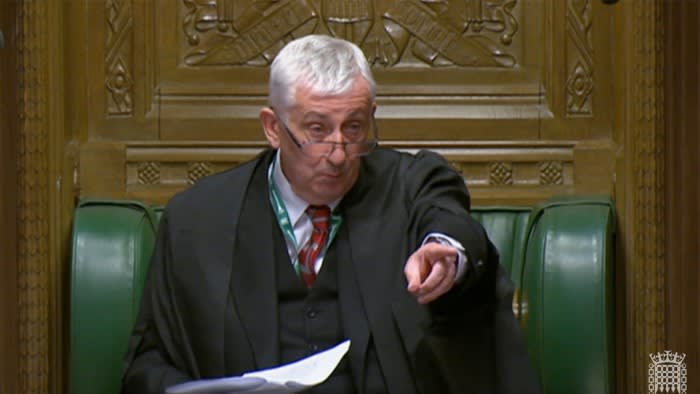Unlock the Editor’s Digest for free
Roula Khalaf, Editor of the FT, selects her favourite stories in this weekly newsletter.
Opposition leader Sir Keir Starmer was set to dodge a large-scale rebellion of Labour MPs on Gaza on Wednesday after a controversial decision by the House of Commons Speaker sparked outcry in Westminster.
The move by Sir Lindsay Hoyle to allow a vote on a Labour amendment in a debate on a ceasefire defused the risk of multiple resignations from the party’s front bench.
But Conservative MPs criticised Hoyle’s decision as favouring Labour, while the Commons clerk, the principal constitutional adviser to the House, said it was a “departure from the long-established convention”.
One Conservative MP said that Hoyle was “moving the goalposts”.
The debate was at the initiative of the Scottish National party, which has pushed for months for an immediate ceasefire and sought to expose internal divisions over Labour’s more hesitant position on ending the hostilities.
Labour insiders had been braced for a rebellion of up to 100 MPs on Wednesday evening if they had been unable to vote for the party’s own amendment, including some shadow cabinet resignations.
However, the decision to allow a vote on the Labour amendment means that MPs who feel strongly about the issue will now be less likely to defy the whip by supporting the SNP motion.
The amendment calls for an “immediate humanitarian ceasefire” in Gaza but this is dependent on certain conditions being met.
There had been expectations that parliamentary procedure would mean the Labour amendment could not be voted on because the government had produced its own amendment to the SNP motion.
In his highly unusual criticism of Hoyle’s decision as a break with convention, Tom Goldsmith, the Commons clerk, said: “Long-established principles are not being followed in this case.”
But the Speaker said it was important for the Commons to consider “the widest possible range of options” given the strength of feeling among MPs.
The Labour amendment said an Israeli ground offensive in Rafah, the southern area of Gaza to which more than 1mn people have fled, risked “catastrophic humanitarian consequences”.
It called for an “immediate stop to the fighting and a ceasefire that lasts and is observed by all sides”.
However, the amendment also urged Hamas to release and return all hostages it has held since October and said Israel cannot be expected to stop fighting so long as the militant group “continues with violence”.
Stephen Flynn, the SNP’s Westminster leader, said his party would vote for the Labour amendment — despite it being “deficient in a number of ways” — to maximise the chances of the UK Parliament supporting a ceasefire.
“Be in no doubt that a combination of public opinion and SNP Parliamentary power has inserted a backbone into the Labour party — that is to the benefit of all,” he added.
Labour has been engulfed by an internal battle over its position on the war since Hamas’s October 7 attack on Israel sparked the four-month conflict in Gaza.
Starmer initially said on LBC radio that Israel had the right to cut off water and electricity to Gaza — comments he later clarified — prompting fury among many Labour supporters.
Starmer then held off calling for an “immediate” ceasefire in favour of demanding a “sustainable” one, but his position has shifted under pressure from many of his MPs and party members.
In November, 10 Labour frontbenchers were forced to resign while 46 other Labour MPs defied the leadership to vote in support of a previous SNP motion calling for a ceasefire.
Some 1,200 people were killed in the October 7 assault, according to Israeli officials. Palestinians officials say Israel’s offensive in Gaza has killed more than 29,000 people and has devastated the enclave.
